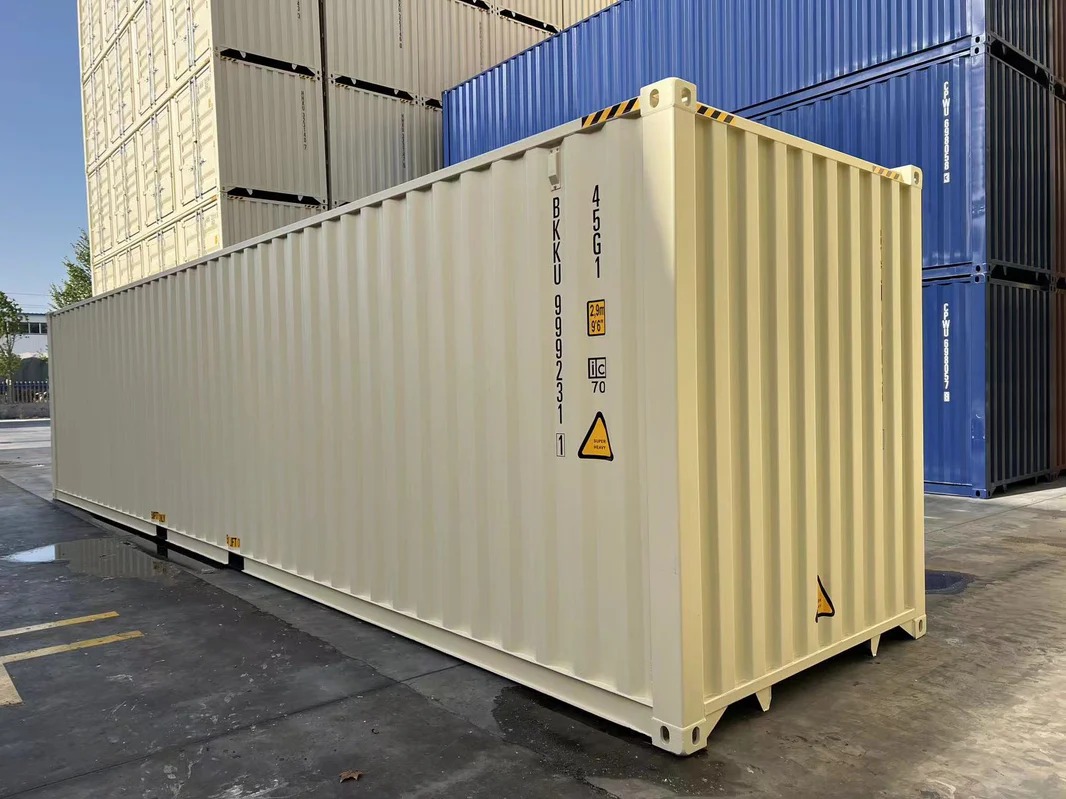10 Things We Do Not Like About 20ft Container New

Understanding the 20ft Container: The Ultimate Guide
In the world of logistics and shipping, containers have actually changed the method goods are transported and stored. Amongst the various sizes available, the 20ft container is one of the most common and widely used. This blog post aims to supply extensive insights into the characteristics, utilizes, advantages, and expenses related to 20ft containers.
What is a 20ft Container?
A 20ft container is a standard intermodal shipping container determining 20 feet in length, 8 feet in width, and 8.5 feet in height. It is created to carry a wide range of items, ranging from basic materials to end up items. These containers are constructed from long lasting steel, making them ideal for both sea and land transportation.
Key Specifications of a 20ft Container
| Spec | Measurement |
|---|---|
| External Length | 20 ft (6.058 m) |
| External Width | 8 ft (2.438 m) |
| External Height | 8.5 ft (2.591 m) |
| Internal Length | 19.4 ft (5.898 m) |
| Internal Width | 7.7 ft (2.352 m) |
| Internal Height | 7.9 ft (2.393 m) |
| Maximum Gross Weight | 24,000 kg (52,910 pounds) |
| Tare Weight | Approximately 2,300 kg (5,071 pounds) |
| Payload Capacity | Around 21,700 kg (47,858 pounds) |
Uses of the 20ft Container
The adaptability of 20ft containers enables them to serve several functions across different markets. Here are some common uses:
- Shipping and Transportation: Ideal for global freight, 20ft containers are frequently used for shipping by sea, rail, and roadway.
- Storage Solutions: These containers can be utilized for short-term or permanent onsite storage. Their resilience protects products from ecological elements.
- Modifications and Conversions: Many organizations repurpose 20ft containers into portable offices, workshops, or retail areas due to their robust structure.
- Real estate Solutions: In recent years, container housing has gotten popularity, making 20ft containers a feasible option for cost effective real estate.
- Moving Households: They are likewise utilized in residential moving for carrying individual possessions.
Advantages of Using 20ft Containers
When considering using a 20ft container, a number of advantages pertain to the forefront:
- Cost-Effective: The average cost of a 20ft container is lower compared to bigger containers, making them an affordable choice for shipping smaller quantities of products.
- Accessibility: Their moderate size makes them simple to transfer and steer in different environments, including urban locations.
- Sturdiness: Made from high-quality steel, 20ft containers can stand up to harsh weather conditions and are resistant to rust and insects.
- Security: Containers can be safely locked and are frequently fitted with high-security functions, ensuring that cargo stays safe during transit and storage.
- Ecological Sustainability: Using containers for housing or storage is an environmentally friendly option, as it promotes the recycling of materials.
Factors to consider When Using a 20ft Container
While there are many benefits, it's necessary to think about some elements before selecting a 20ft container:
- Weight Limits: The maximum gross weight may limit the types of products that can be transferred.
- Space Limitations: For bigger deliveries, numerous 20ft containers might be needed, which uses up more space.
- Ventilation Issues: Containers are airtight, so appropriate ventilation steps need to be taken when storing certain products, such as perishables.
Expense of 20ft Containers
The price of a 20ft container can differ considerably based on factors such as condition (new vs. utilized), location, and extra features. Here's a rough estimate to provide you a concept of the expenses involved:
| Container Condition | Estimated Price Range |
|---|---|
| New | ₤ 2,500 - ₤ 4,500 |
| Used | ₤ 1,200 - ₤ 2,500 |
These rates go through alter based upon market demand and shipping range.
Frequently Asked Questions (FAQ)
1. What can I save in a 20ft container?
A 20ft container can store a variety of items, including furniture, workplace devices, tools, and lorry parts. However, know the weight limitations and ventilation needs for certain goods.
2. How long can containers last?
A well-maintained container can last as much as 30 years. However, exposure to salted air, rust, and weather condition can minimize its life expectancy.
3. Do cogcontainersltd.com need a permit to place a shipping container on my home?
This depends on local regulations and zoning laws. It's suggested to talk to your local council or authority to determine any needed permits.
4. Can I customize a 20ft container?
Yes, numerous business use tailored modifications for containers, such as windows, doors, insulation, and electrical systems.
5. How do I transfer a 20ft container?
Transporting a 20ft container normally requires a specific truck geared up with a flatbed or a roll-off system. It's important to work with a professional knowledgeable in container transportation.
The 20ft container stays a dependable option for individuals and organizations alike, providing flexibility in shipping, storage, and even distinct building options. As international trade continues to expand, understanding the advantages and uses of these containers can boost logistical performance and offer innovative alternatives in different sectors. With its robust structure and cost-effectiveness, the 20ft container is here to remain as a crucial component of contemporary commerce.

